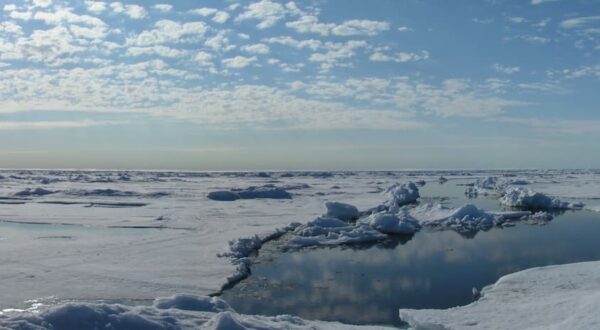Science and Advocacy at the Tara Ocean Foundation: A Synergy in Service of the Ocean
As the 3rd United Nations Conference on the Oceans just came to an end, scientific warnings about the state of the Ocean are clearer than ever: plastic pollution, climate change, erosion of biodiversity... Against this backdrop, the Tara Ocean Foundation is reaffirming its role as a leading player, combining excellent science, political advocacy and citizen mobilisation. Its ambition: to transform scientific knowledge into concrete levers to contribute to public decision-making and put the Ocean back at the heart of international priorities.
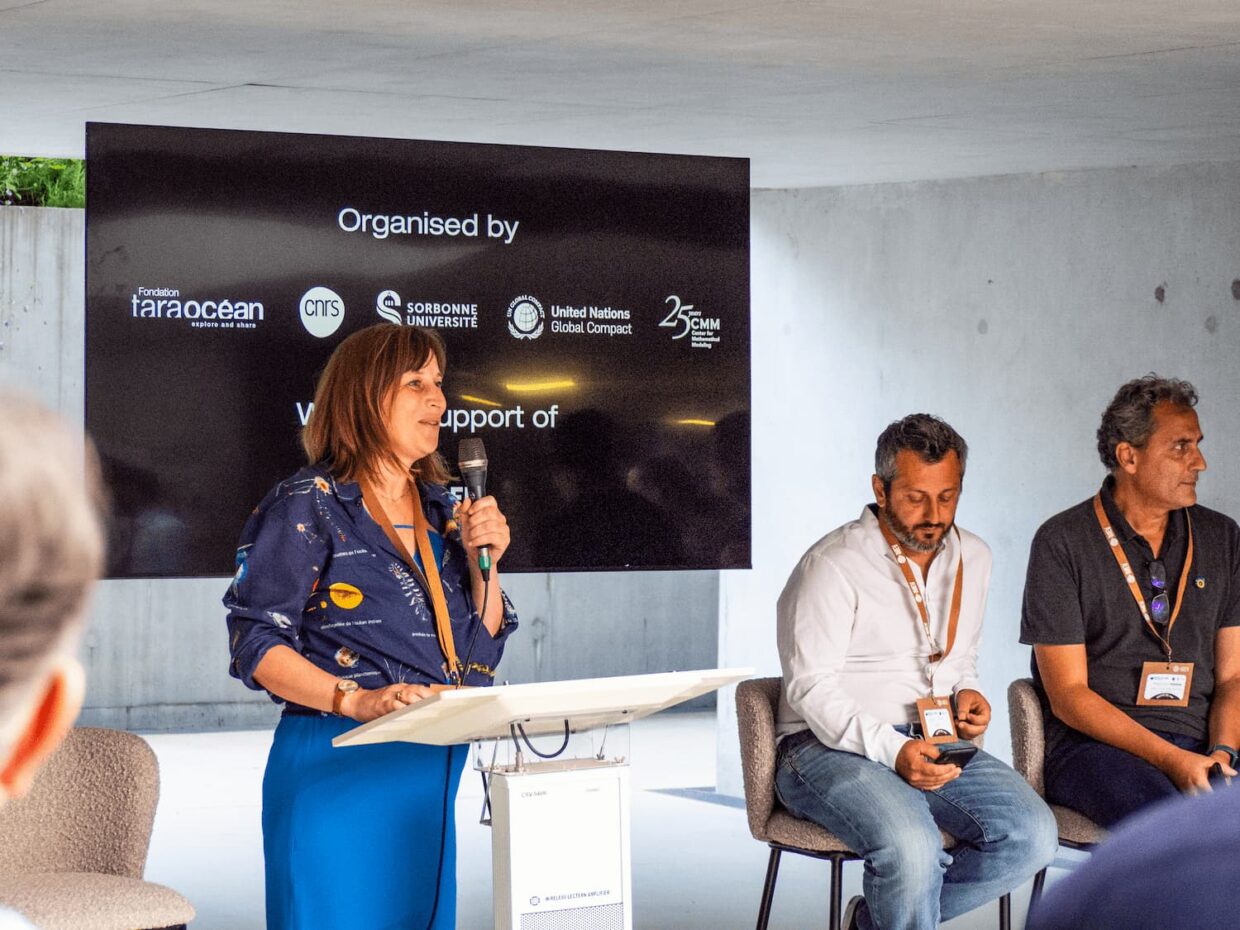
Science as the Voice of the Ocean
The Ocean at the Heart of Global Challenges
The ocean covers 70 % of our planet’s surface—it feeds us, regulates the climate, and supplies much of our oxygen. It harbors immense, often invisible biodiversity essential for all life on Earth. Yet it remains one of the least understood and most vulnerable environments to human impacts: plastic pollution, climate disruption, acidification, overfishing, and destruction of coastal habitats, among others.
In this context, generating knowledge alone is not enough. Science must inform public decisions, shape legislation, and transform collective practices. This conviction fuels the Tara Ocean Foundation: building a bridge between scientific data and the implementation of public policy and societal behavior.
Open, Collaborative, Action-Oriented Science
Since its founding, the Tara Ocean Foundation has been built on a core principle: to deeply understand the ocean through rigorous, transparent scientific research that benefits society.
This research is never conducted in isolation. The Foundation organizes, supports, and unites global scientific programs in partnership with top laboratories and research institutions to study the ocean’s full complexity. Aboard Tara (and soon the Tara Polar Station), scientific missions are co-designed by interdisciplinary consortia—including oceanographers, biologists, chemists, climatologists, physicists, and engineers. The Foundation has launched extensive observational programs focusing on plankton, microplastics, and even Arctic and coral ecosystems.
These programs aim to answer specific, strategic questions, such as:
- How is plankton biodiversity evolving in a warming ocean?
- What is the extent and impact of plastic pollution on marine ecosystems?
- What are the interactions between atmosphere, ice, and ocean in the Arctic?
- How can we better understand carbon biogeochemical cycles and their role in climate regulation?
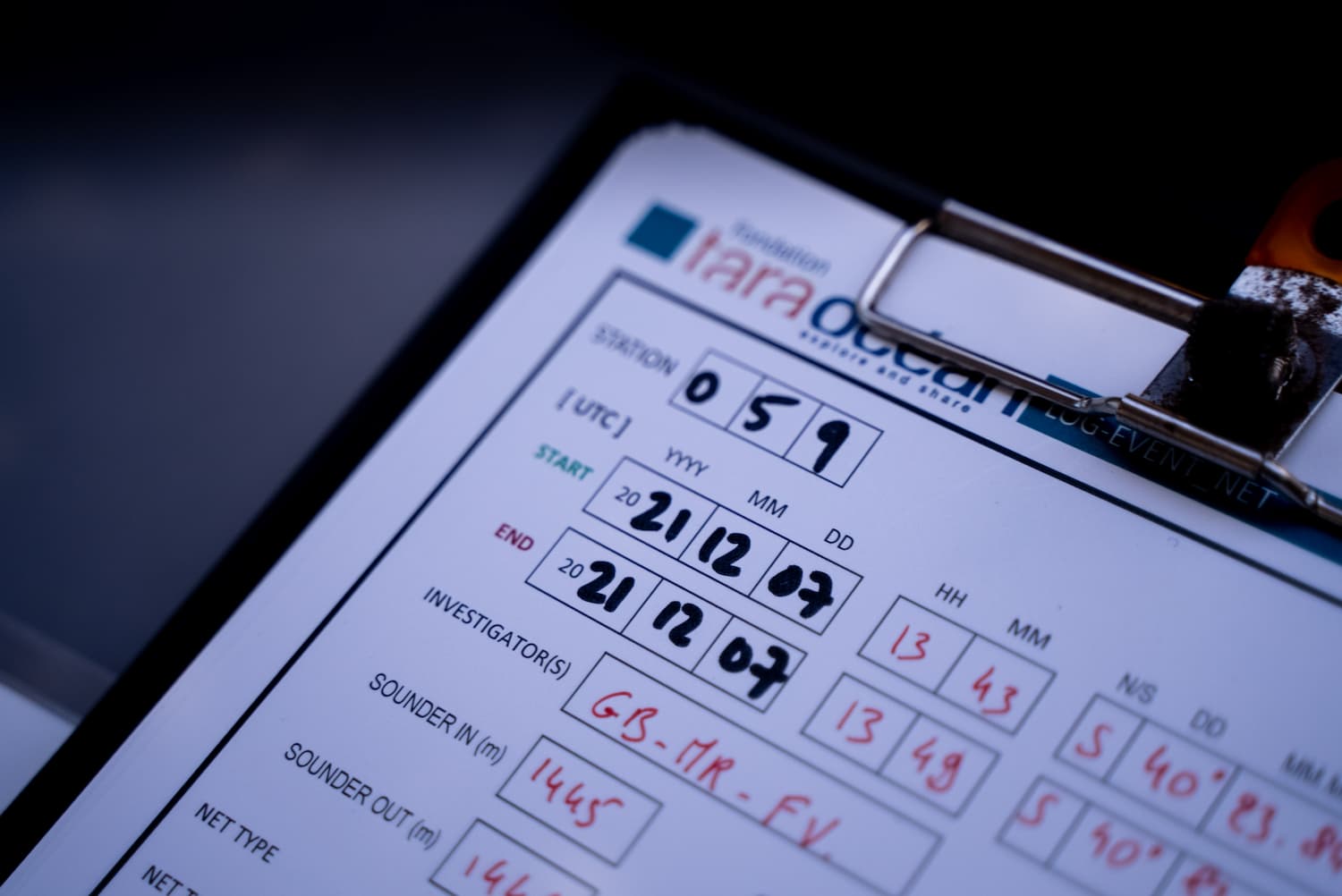
community—provides the legitimacy and credibility that underpin the Foundation’s advocacy efforts.
By feeding this knowledge into national and international governance bodies, the Tara Ocean Foundation helps embed science into public decision-making.
From Scientific Knowledge to Political Advocacy
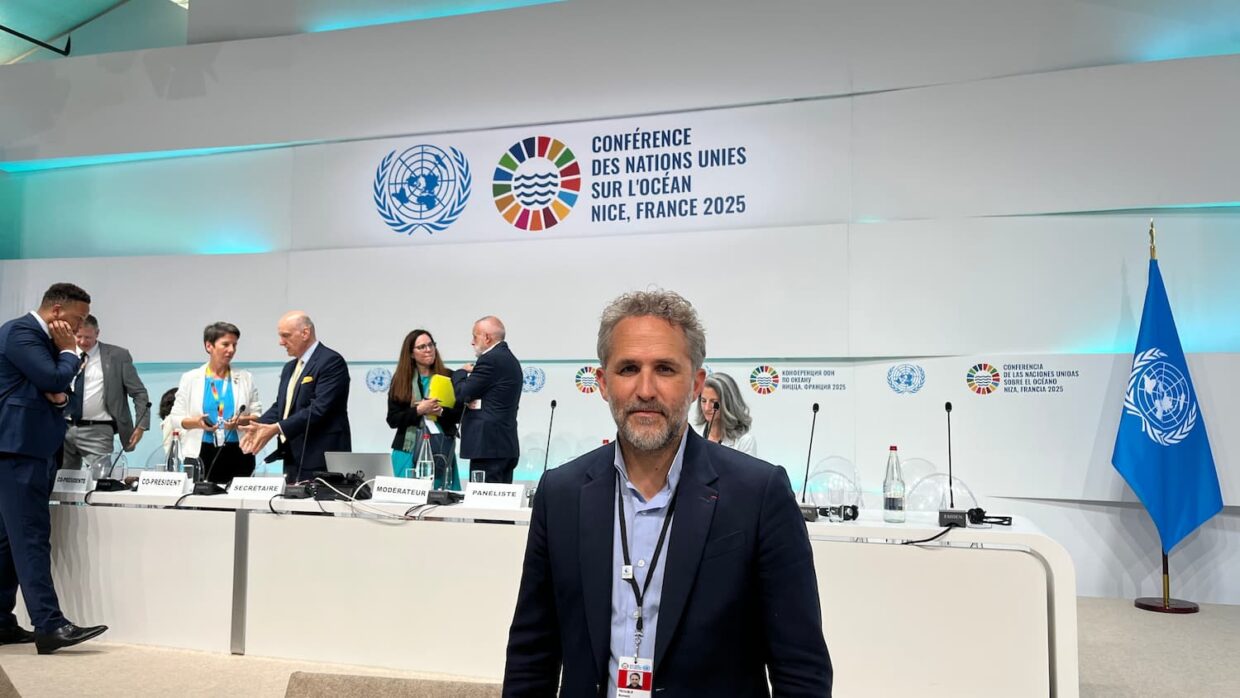
Transforming scientific knowledge
Advocacy is one of the Foundation’s other major pillar. Its goal: to transform knowledge into action, amplify the voice of science in decision-making arenas, and place the ocean at the heart of the global political and environmental agenda.
To that end, the Foundation’s team works closely with French, European, and international institutions, economic stakeholders, and NGOs engaged in its areas of expertise.
The Tara Ocean Foundation engages with:
- The United Nations as a special observer, actively participating in international conferences on climate, biodiversity, and ocean (climate COPs, biodiversity COPs, United Nations Ocean Conference (UNOC), high-seas and plastics treaty negotiations).
- The European Union, contributing to research directions and high-seas governance.
- French authorities, consulted on bills in Parliament and during the development of national strategies by the government.
This advocacy is grounded in a clear methodology and rigorous approach: always relying on results from expeditions—documented, published, and peer-reviewed—alongside the global body of scientific knowledge. These scientific findings support the drafting of policy briefs (clarifying how certain results should inform policy recommendations), and fuel participation in public consultations and negotiations.
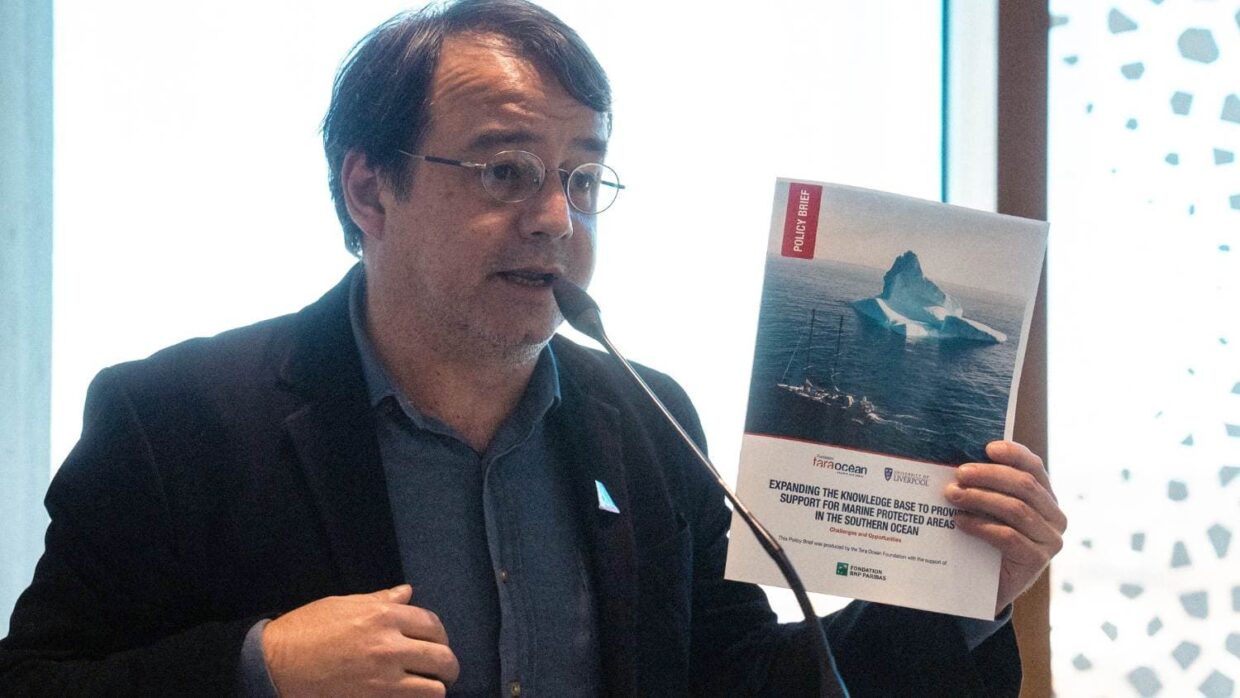
The Foundation’s advocacy also proactively engages civil society, youth, artists, and citizens with powerful messages: defend life, protect the ocean, now.
Its credibility rests on:
- Its scientific legitimacy,
- Transparency of data,
- A constructive, independent approach.
Concrete Outcomes: When Science Moves the Needle
The interactions between science and advocacy at Tara are reflected in tangible examples of contributions to public policy and international governance:
a) Fighting plastic pollution
Tara Ocean foundation has pioneered studies of microplastics at sea. Through field campaigns, it has documented plastics in every ocean basin, including polar regions—highlighting the problem’s global scale. At the UN, the Foundation has advocated for a binding global treaty on plastic pollution focused on production phases, providing independent scientific expertise essential to framing negotiations.
b) High-seas research and global governance
The Foundation contributed to negotiations on the high-seas biodiversity treaty (BBNJ). By bringing scientific expertise from the Tara Oceans consortium to the table, they helped close the gap between political negotiators and scientific realities. They championed a legally binding framework to protect these regions and share genetic resource benefits with the Global South—leading to the adoption of the BBNJ treaty in June 2023. With over 60 States announcing ratification at UNOC in Nice, it is set to enter into force in the coming months.
c) Arctic research
Le lancement de Tara Polar Station, qui contribue au déploiement en Arctique de la Stratégie Polaire de la France à l’horizon 2030, permettra de fournir des données cruciales, nouvelles et continues sur l’évolution et le rôle régulateur de l’Arctique, dans un contexte de changements climatiques rapides. Ces données contribueront activement à renforcer les cadres de conservation de ces espaces uniques.
Engaging and Sharing Science with Society
Beyond politics, the Foundation pursues a societal engagement strategy, recognizing that while every citizen has a role, the most decisive levers remain with political and economic leaders—operating under a principle of common but differentiated responsibility in the ocean crisis.
The Foundation intensifies efforts to democratize scientific knowledge across diverse audiences: schools, universities, families, professionals, artists, and journalists.
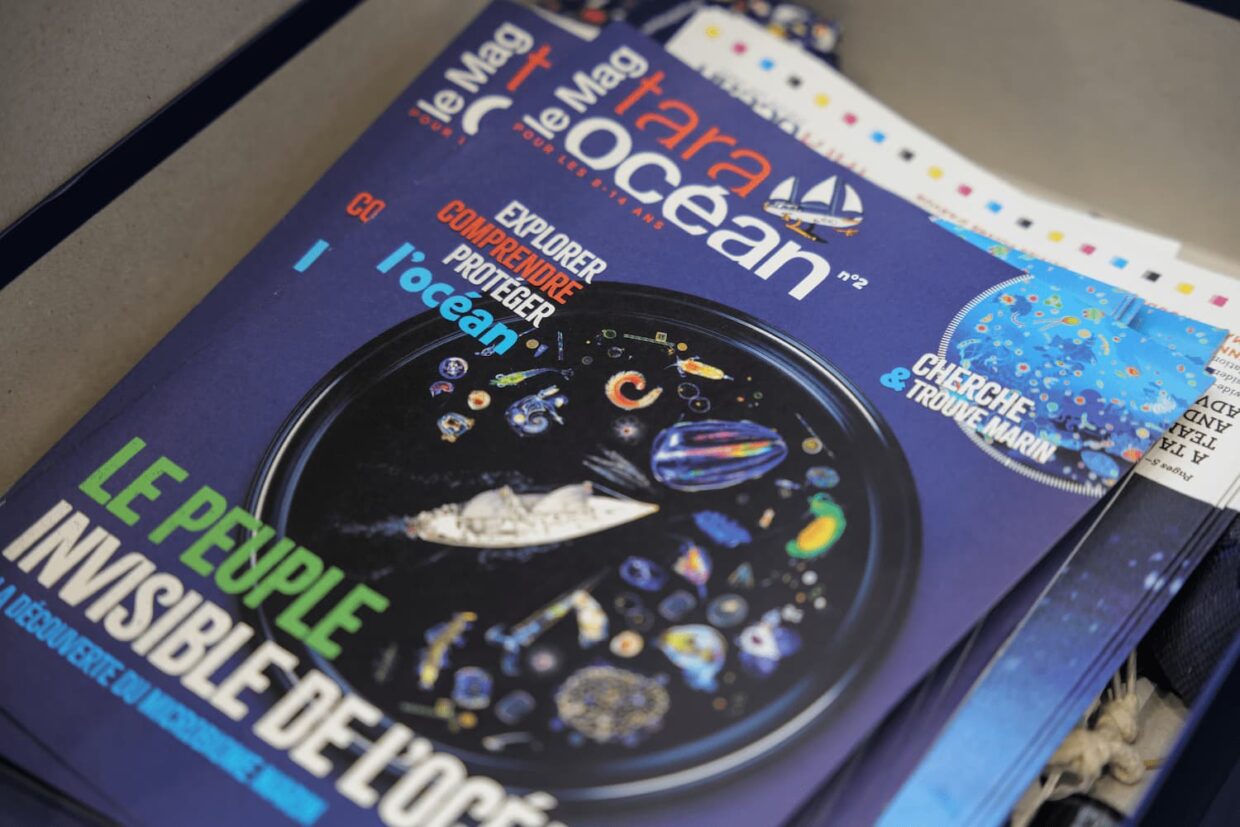
Key pillars:
- Education: pedagogical resources in schools, teacher training, classroom projects focused on ocean issues.
- Outreach: exhibitions, podcasts, documentaries, social media, illustrated books to make expedition results accessible.
- Inspiration: inviting artists, writers, young scientists, and engaged youth aboard Tara to foster vocations and build bridges across disciplines, perspectives, and generations.
Their vision: no sustainable ocean defense without a shared oceanic culture. The link between science and advocacy also lies in this capacity to resonate with societal hopes, fears, and aspirations.
As such, the Tara Ocean Foundation plays a pivotal role uniting the scientific community, political institutions, media, NGOs, and the public. It demonstrates that science can drive collective transformation when knowledge is shared, explained, and translated into actionable levers.
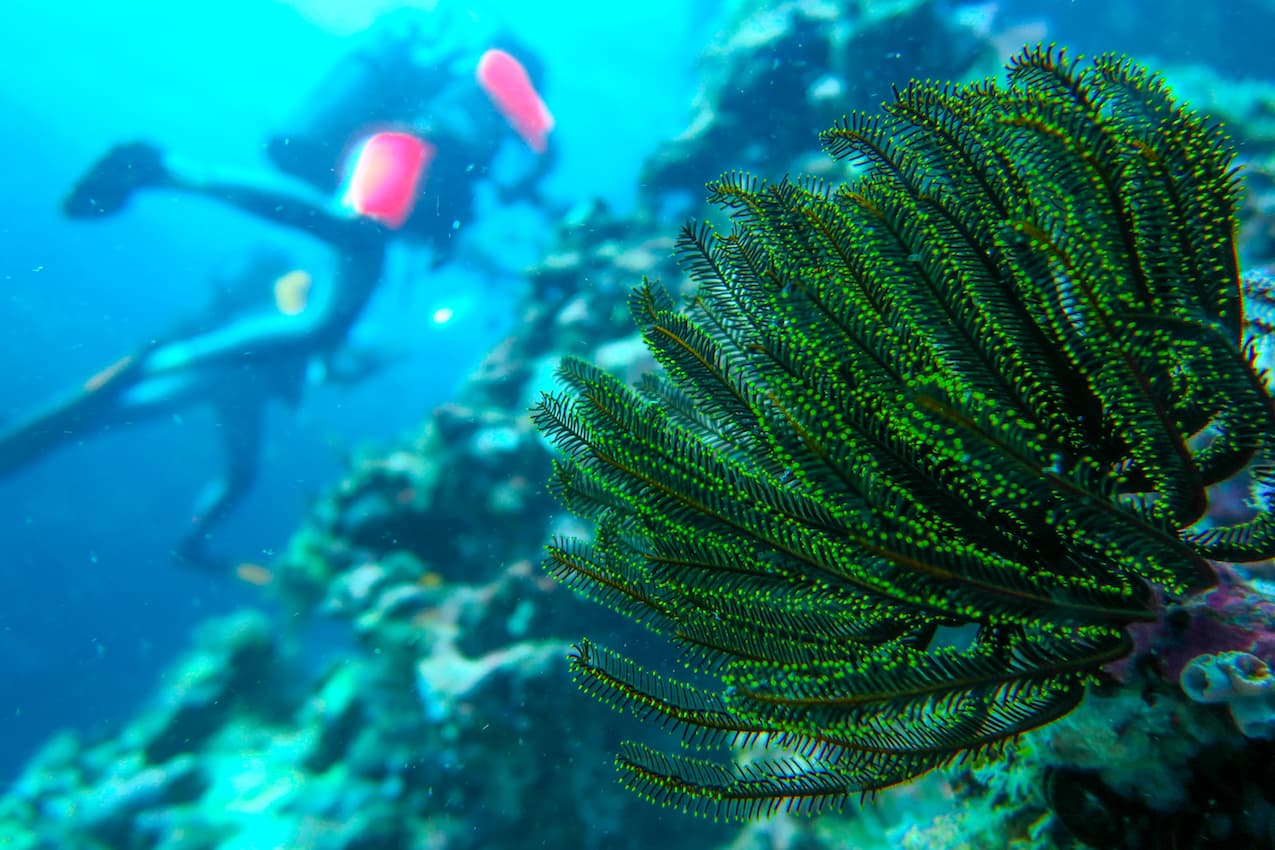
By articulating science, advocacy, and outreach, the Tara Ocean Foundation offers a unique action model for ocean protection. It shows that excellence in science, political influence, and societal engagement can go hand in hand—serving a shared goal: understanding the ocean to better protect it. In a world facing severe environmental crises, this science-action alliance is more essential than ever.
Together, let’s defend life—let’s protect the Ocean.
